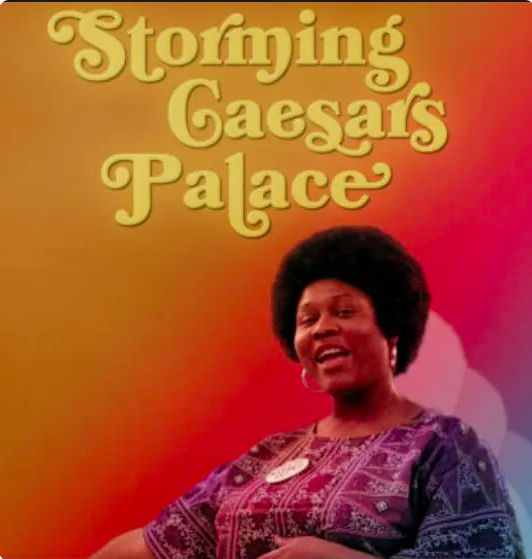
Maryland Public Television (MPT) is celebrating Women’s History Month and a very special woman, Ruby Duncan, tonight. The documentary “Storming Caesars Palace,” will air on MPT at 10 p.m. Eastern Time.
The documentary chronicles a little-noticed welfare rights battle in which Duncan led a group of welfare mothers in a demand for public assistance. A preview was held at the MPT headquarters in Owings Mills, Md. on March 8, followed by a panel discussion about the issue.
Duncan, in the late 1960s and early 1970s, went up against the Las Vegas hotel industry, as well as state and federal lawmakers and welfare officials.
Ruby fought for the economic rights of poor people, especially women on welfare with children. She was a leader, an organizer, and a brilliant strategist. The panel following the film included Dana P. Moore, Baltimore’s chief equity officer and director of the Office of Civil Rights and Wage Enforcement, Chrissy Thornton, executive director of Associated Black Charities and Robyn Murphy, chief executive officer of JRM Consultancy.
The film tells the story of how women on public assistance, most of them Black, advocated for a change in policies which were being touted by President Richard Nixon domestic policy adviser Daniel Patrick Moynihan at the time. The state of Nevada had cut 75 percent of its aid to welfare mothers.
And that is what brought Ms. Ruby Duncan, a mother in Las Vegas, into activism and into the fight against poverty and cruel government neglect. The film, “Storming Caesars Palace,” is Ruby Duncan’s story as told by Hazel Gurland-Pooler, a Colombian-born filmmaker who has worked with Henry Louis Gates Jr.
Duncan worked in the service industry as a hotel worker until she was fired. Jobless, but responsible for dependents, she began to find others in her situation and started organizing them to fight for financial help from the government for their children and themselves.
Imagine that, an unemployed woman with children, with limited education and experience and no organizing training taking on the hotel industry, the state and federal government and organized crime–and won!
It is a fascinating story of charismatic leadership and nothing-to-lose courage (1,100 families had already been cut from public assistance by the state of Nevada, dubbed ‘Mississippi of the West’ by some).
See the film, “Storming Caesars Palace.” It is inspiring, full of irony and laced with humor.
Ruby Duncan’s charm and her liberating lack of fear clearly helped her gain followers. Check out this amazing woman for yourself. She was a tremendous champion for the poor, but Ruby moved poor women to action by inspiring them to fight for justice. See the film.
The panel discussion that followed the preview of the film on March 8 was packed with mostly women but a few of us menfolk.
Robyn Murphy began the discussion by asking the two panelists their impressions of the documentary. Dana Moore remarked that Ruby Duncan reminded her of her own mother—with an absentee husband away in the military and later a divorced single mom with four children.
Duncan’s perseverance, political savvy and protective nature of her kids reminded her of her mom. Moore spoke of the need for increasing help for poor people in Baltimore calling for more and better public transportation, more decent, affordable housing, fewer food deserts in neighborhoods and quality education and healthcare.
Chrissy Thornton, the new head of Associated Black Charities, praised the film.
“I loved the film, watched it ahead of time. I actually got the book,” said Thornton. She decried the tendency for organizations and “affluent Black folks” to make decisions for poor people rather than working with them. “I think sometimes we lose focus on the larger issues such as the need for people to have economic stability,” she said.
In addition, Moore encouraged the women in the audience to step up in the fight for those in need. “Don’t wait for them to give you a seat at the table. Make your own place at the table. Like Ruby, some folks under-estimated me. When people do, I enjoy proving them wrong, as Ruby Duncan did.”
Murphy closed the panel discussion by urging the group to invite others to see the film.
No one who saw Ruby Duncan’s life story on film will be the same after viewing it, I’m convinced.
An African proverb reminds us that,” It is women who hold up the sky.”
Ruby held up her end, but she is now 90 years old. Who will come behind her to fight for welfare rights in Baltimore, as the late Bobby Cheeks and Annie Chambers of Baltimore Welfare Rights once did during Ruby’s busiest days?



